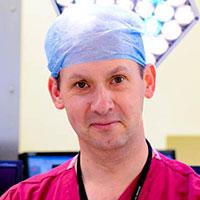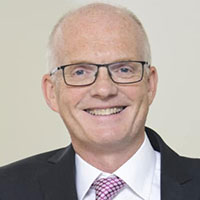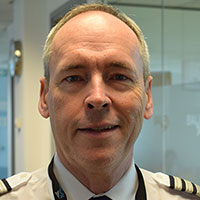Hospitals should remove any barriers to doctors eating and drinking during the working day
As healthcare providers, it’s easy to forget to look after ourselves at work. We know that taking regular breaks and eating and drinking routinely is a critical component of being “optimised” at all times, helping to sustain our energy, concentration, and performance, and reduce the risk of human error. Yet for many medical staff, the everyday realities of working in busy, modern hospitals get in the way.
Medicine is a demanding profession, with days often starting early and finishing late, and many healthcare professionals fall into the habit of forgetting to take regular breaks, drinking inadequate quantities of fluid, or missing meals while caring for patients. If we want to improve staff wellbeing and reduce the risk of errors, we need to change this.
Despite its importance, there are relatively few publications about the role of hydration in optimising performance in healthcare. We know that even small deficits of water in the human body impede physical performance and lead to worsening dehydration, causing headaches, sleepiness, impatience, and apathy.[1] And while we are not comparing aviation and healthcare, tried and tested human factors principles can be applied from aviation—where safety and optimisation are taken more seriously[2]—to the healthcare setting. For example, the importance of hydration for pilots is well known. When assessed in full motion aircraft simulators, pilots’ working memory, spatial awareness, and flying accuracy were found to be significantly reduced when they were dehydrated (equivalent to a 1-3% loss of body mass).[3]
While thirst cues usually present before the ill effects of low hydration occur, it is easy to see how healthcare staff might become under-hydrated if they are busy. Indeed, one study of junior doctors in an intensive care unit found that the doctors were more likely to be oliguric than the sick patients they were caring for.[4]
It would help if teams could agree to have regular fluid breaks when planning long ward rounds or all day operating lists. Hospital trusts should also ensure that readily available sources of drinking water or fluid are close to wherever staff may be working in a hospital. If water fountains or access to a drink means a 10 minute walk, many doctors just won’t bother.
This is often a problem of time and convenience, with doctors being offered limited opportunities to catch up on hydration and nutrition during the working day. Hospitals need to remove these barriers and actively encourage staff to make sure they take breaks and are adequately hydrated and fed.
The poor availability of healthy food in hospital canteens, and the lack of selection, likely exacerbates this problem. A survey of 328 NHS doctors, which was looking at barriers to healthy eating in hospitals, found that the lack of healthy food options caused the most dissatisfaction, and only 12% felt that the NHS was supportive of healthy eating.[5]
Fast and processed food is linked to poorer performance.[6] Yet how often do we see colleagues eating a chocolate bar in the corridor as their meal before rushing to the next task? Restoring the health of patients is at the core of what we do, yet we work in environments where eating fast and processed food on a regular basis is often the easier option. This simply cannot be good for us. Hospitals could help by having a canteen that is open 24 hours a day with a variety of freshly prepared food for staff working shifts. Many trusts simply do not have this facility.
For years, doctors have been advocating that that we need to change our eating habits at work.[7][8] Surely now we need to wake up to the importance of looking after ourselves at work, in everything from what we eat and drink, to how often we take breaks?
Remember the oxygen mask situation on an aeroplane? Put your own mask on first before helping others. To give our patients the best care possible and to reduce the chance of medical error, we must make sure we look after ourselves too. This vital prerequisite to safe medical practice needs to be supported and actively encouraged by senior executives across NHS Trusts. This could be done by having corporate rules that, for example, limit operating time, long ward rounds, or other tasks to a maximum of 3-4 hours before a mandatory break is required. Hospitals should emphasise the importance of staff looking after themselves, with top-down promotion across trusts from the executives to the consultant staff and on to the rest of the team, together with visible posters.
With adverse patient outcomes still a regular occurence and staff morale increasingly a pressing concern, surely we need a culture change across healthcare to improve the wellbeing of staff and patients’ care? Simple measures to optimise ourselves could really make a difference.
The BMJ is launching a campaign calling for doctors to be able to take the breaks that they need—for their own wellbeing and for patient safety. You can take part in the campaign by sharing your examples of where things are changing for the better—or where more work needs to be done—via social media using #giveusabreak
 Peter A Brennan is a consultant maxillofacial surgeon and honorary professor of surgery at Queen Alexandra Hospital, Portsmouth. Twitter @BrennanSurgeon
Peter A Brennan is a consultant maxillofacial surgeon and honorary professor of surgery at Queen Alexandra Hospital, Portsmouth. Twitter @BrennanSurgeon
Competing interests: None declared.

Rachel Oeppen is a consultant radiologist at the University Hospitals, Southampton.
Competing interests: None declared.
 John Knighton is a critical care consultant and medical director at Portsmouth Hospitals NHS Trust, Queen Alexandra Hospital. Twitter @JohnKPHT
John Knighton is a critical care consultant and medical director at Portsmouth Hospitals NHS Trust, Queen Alexandra Hospital. Twitter @JohnKPHT
Competing interests: None declared.
 Captain Mike Davidson flies the A380 Airbus for a major UK airline and is a union representative for the British Airline Pilots Association (BALPA).
Captain Mike Davidson flies the A380 Airbus for a major UK airline and is a union representative for the British Airline Pilots Association (BALPA).
Competing interests: None declared.
References
[1] Adolf EF. Physiology of man in the desert. 1st ed. New York: Inter Science Publishers;1947.
[2] Brennan PA, Mitchell DA, Holmes S, et al. Good people who try their best can have problems: recognition of human factors and how to minimise error. Br J Oral Maxillofac Surg 2016;54:3-7. https://www.ncbi.nlm.nih.gov/pubmed/26542258
[3] Lindseth PD, Lindseth GN, Petros TV, et al Effects of hydration on cognitive function of pilots. Mil Med 2013;178:792-8. https://www.ncbi.nlm.nih.gov/pubmed/23820354
[4] Solomon AW, Kirwan CJ, Alexander ND, et al. Urine output on an intensive care unit: case-control study. BMJ 2010;341:c6761. https://www.bmj.com/content/341/bmj.c6761
[5] Winston J, Johnson C, Wilson S. Barriers to healthy eating by National Health Service (NHS) hospital doctors in the hospital setting: results of a cross-sectional survey. BMC Res Notes 2008;1:69. https://www.ncbi.nlm.nih.gov/pmc/articles/PMC2551607/
[6] Burrows T, Goldman S, Pursey K, Lim R. Is there an association between dietary intake and academic achievement: a systematic review. J Hum Nutr Diet 2017;30:117-140. https://www.ncbi.nlm.nih.gov/pubmed/27599886
[7] Jaques H. Ban junk food in hospitals, say doctors. BMJ 2013;346:f4201. https://www.bmj.com/content/346/bmj.f4201
[8] Lesser LI, Cohen DA, Brook RH. Changing eating habits for the medical profession. JAMA 2012;308:983-4. https://jamanetwork.com/journals/jama/article-abstract/1357271
